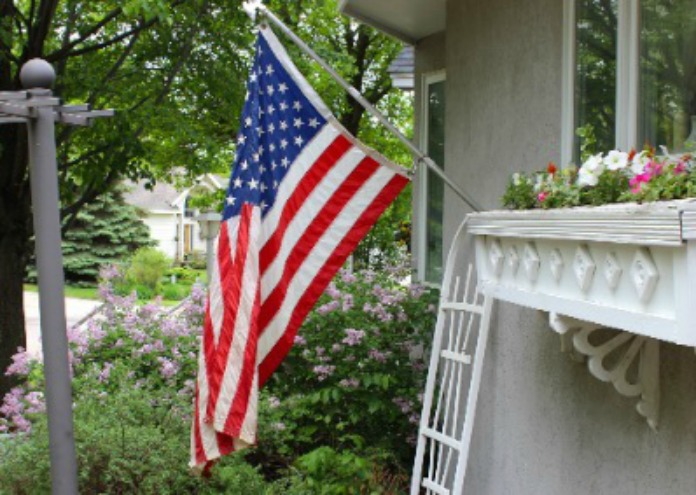The USDA is offering food safety tips for the Fourth of July holiday. We all know the basic drill: cook properly, clean everything, sanitize often, and avoid cross-contamination, but it’s a good idea to review these rules before you have lots of guests to feed.

First of all, hot Fourth of July summer weather will play a part in food safety. As the temperatures rise, the risk for foodborne illness goes up. Not only do bacteria multiply more quickly in warm weather, but when the ambient air temperature is above 90°F, you must get prepared and cooked food into refrigeration after just one hour, not the usual two hours.
To start, always wash your hands with soap and water for at least twenty seconds before and after cooking, and especially after handling raw meats, poultry, eggs, and seafood. USDA studies have shown that most participants did not attempt to wash their hands during meal preparation. If soap and water isn’t available, use alcohol-based hand sanitizer. And always clean surfaces and utensils before cooking and after contact with raw meat and poultry.
Avoid-cross contamination, both in the fridge and while cooking. Keep raw meats and poultry separate from fruits and veggies that are eaten uncooked. When you grill, never put cooked meats onto plates that held raw meats. I always wash the thermometer temperature probe and utensils such as tongs each time I use them while grilling. And avoid touching anything, including utensils, salt and pepper shakers, and cutting boards, after working with raw meat until you have washed your hands.
Keep hot foods hot and cold foods cold. The danger zone of 40°F to 140°F is where bacteria can double in numbers every 20 minutes. Use ice and coolers to keep cold foods such as sandwiches and salads safe. Serve cooked food as soon as it is cooked, and use warming trays or slow cookers to keep them hot if necessary.
Always use a food thermometer. This essential kitchen tool will help you make sure that the food you cook has been heated to a high enough temperature to kill pathogens such as E. coli, Salmonella, Listeria monocytogenes, cyclospora, and Campylobacter. Solid cuts of beef, pork, lamb, and veal must be cooked to 145°F. All chicken and turkey, including ground poultry, must be cooked to 165°F. Ground beef, pork, lamb, veal, and egg dishes must be cooked to 160°F. No exceptions.
And have a wonderful Fourth of July holiday with family and friends.




